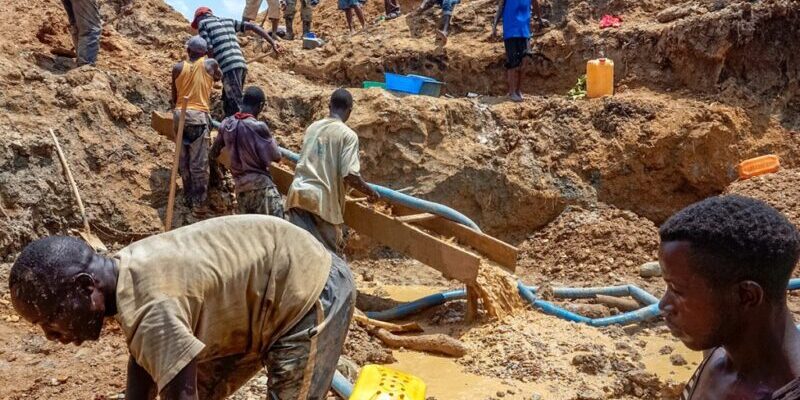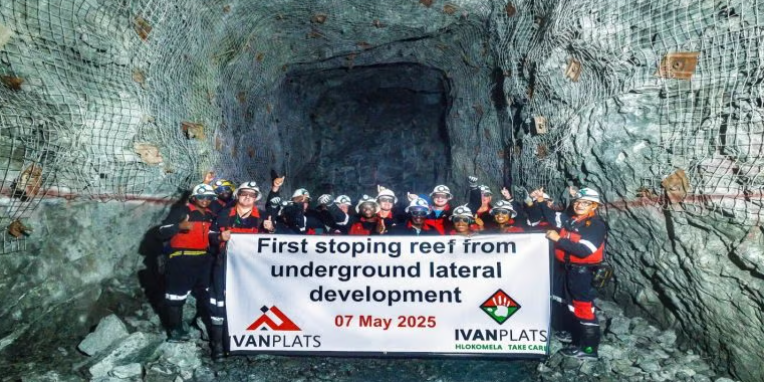
The Democratic Republic of Congo (DRC) is a highly underdeveloped country with immense reserves of critical minerals such as cobalt and copper.
Within the DRC’s mining sector, approximately 2 million individuals work as artisanal miners, with 250,000 specifically engaged in cobalt mining.
For many of these miners, engaging in artisanal and small-scale mining (ASM) is a necessity to earn a livelihood.
However, there is an opportunity to foster responsible mining practices and formalize the sector, benefiting both large mining companies and artisanal miners.
Importance of Responsible Mining and Geopolitics
Given the significance of critical minerals like cobalt and copper in various industries, including renewable energy and technology, the geopolitics of the DRC’s mining sector are crucial.
Responsible mining practices can be a competitive advantage for the country, necessitating engagement with all stakeholders involved, including the government, local communities, and artisanal miners.
By prioritizing responsible practices, the DRC can establish itself as a reliable and ethical source of critical minerals, attracting investments and ensuring sustainable development.
Nominal Relationships and the Role of Large Mining Companies
Despite ASM often occurring on large mine land concessions, the relationships between large mining companies and artisanal miners are often superficial.
This highlights the need for significant involvement from companies like Glencore in facilitating the formalization process.
By actively engaging with artisanal miners, these companies can contribute to lowering risks associated with the sector while enhancing the dignity and productivity of the miners.
Key Factors for Formalization
The process of formalizing ASM requires several crucial elements. First and foremost, it demands investment access, enabling the necessary resources for capacity building, infrastructure development, and technology implementation.
Furthermore, clearly defined rights for all stakeholders involved, including artisanal miners, are essential to establish a framework of accountability and protection.
Lastly, effective engagement with artisanal miners is crucial, recognizing their integral role as extensions of local communities residing in proximity to mining operations.
The Multi-Stakeholder Approach
Formalization of the DRC’s artisanal mining sector requires a multi-stakeholder approach involving various actors.
Investors capable of providing financial resources play a vital role in supporting formalization efforts. Large mining companies, alongside other value chain players, can lower risks associated with ASM by actively participating in responsible mining initiatives.
End-customers who prioritize ethical sourcing and reputational risks can also influence the development of the sector.
Standard setters and industry associations like the International Council on Mining and Metals (ICMM) contribute by establishing guidelines and best practices.
Governments, both at national and sub-national levels, play a critical role in ensuring the protection of rights and creating a conducive environment for formalization.
Finally, engagement experts such as Levin Sources, Alliance for Responsible Mining (ARM), and Makor bring their expertise to facilitate dialogue and collaboration among stakeholders.
Diverse Realities and Collective Goals
It is crucial for narratives surrounding ASM to reflect the diverse realities and challenges faced by artisanal miners.
The primary objectives of formalization efforts should include enhancing the dignity and productivity of miners, prioritizing human rights, enabling sustainable development, lowering risks for value chain players, and ensuring increased energy and financial security through an enhanced supply of critical minerals and precious metals.
The formalization of the DRC’s artisanal mining sector represents a significant opportunity for large mining companies and all stakeholders involved.
By actively engaging with artisanal miners and supporting responsible mining practices, these companies can foster a win-win scenario that lowers risks while enhancing the livelihoods and productivity of the miners.
A collaborative and multi-stakeholder approach, coupled with investment access and clearly defined rights, can pave the way for a more formalized and sustainable ASM sector in the DRC, benefiting both the local communities and the global supply chains reliant on critical minerals.






